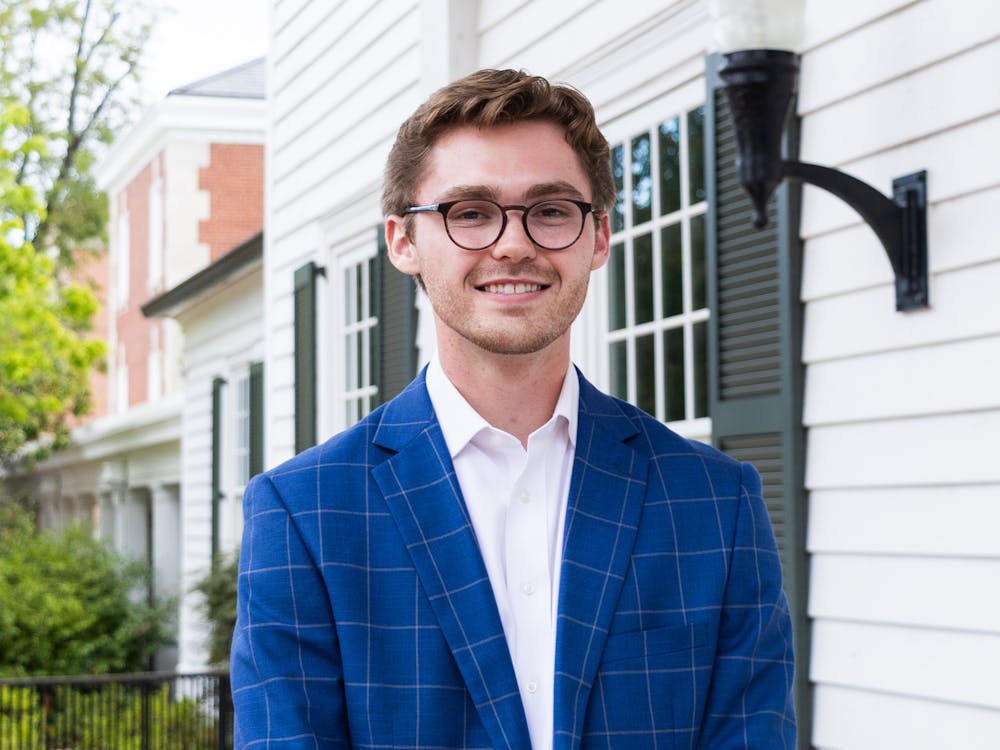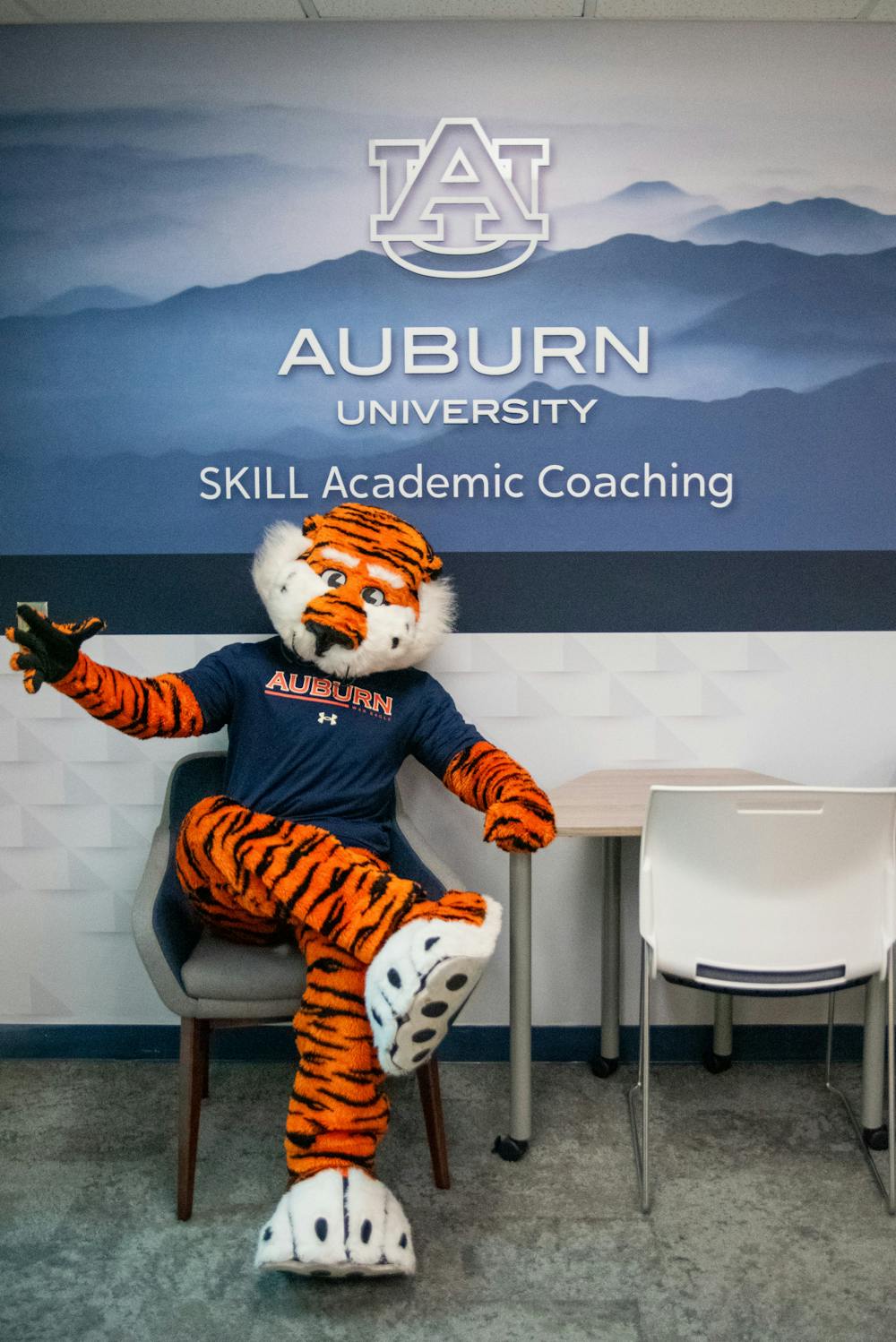In the United States, approximately 20% of people have a learning disability. This translates to over 65 million Americans having a learning disability such as dyslexia, dyscalculia or dysgraphia among others.
However, Auburn University has a program tucked away in the basement of the Haley Center that assists students with learning disabilities and executive functioning challenges through academic coaching.
SKILL is a fee-for-service academic support program that is part of the university’s Office of Accessibility. Their primary goal is to assist students who have learning differences – learning disabilities like those mentioned above – and struggle to adjust to some aspects of college life like time management and lofty decision making. Those struggles are often attributed to executive functioning challenges like ADHD or autism.
Mandi Buckalew, program director and academic coach for SKILL, said that SKILL began in 2016 and was a very small program at its conception, having only 24 students and 2 staff members. Today, SKILL works with over 130 students each semester.
“My job is to support my coaches. As long as my coaches have what they need, they can support the students,” Buckalew said.
Buckalew said that SKILL coaches are much different from typical academic coaches around the country in that they are required to have a master’s degree or higher. SKILL coaches meet with their students one-on-one once a week for 50 minutes to discuss how their week had gone, what they will be focusing on during the upcoming week and make a detailed plan that lays out everything the student has to do that week.
“When you leave [your coaching meeting], you know everything you’ve got to do,” Buckalew said. “You’ve got it in writing in an action plan. You’ve got your classes, your tests, homework, papers, quizzes, everything.”
SKILL coaches do not only assist their students with their academic schedules but also their personal schedules that include club meetings, fraternity or sorority chapter meetings and doctor’s appointments to provide them with a well-rounded experience.
Buckalew stressed that while her and her coaches assist their students in making weekly action plans and schedules, it is still entirely up to the students to carry out these plans. SKILL is there when they need help, but it is not in place to keep them from becoming independent.
While many may look at students who utilize SKILL’s services and assume they are somehow “below” students who do not use SKILL’s services, Buckalew said that is just not the case. Her students qualify for the program based on criteria outlined by the Office of Accessibility, but she said they are often highly intelligent.
“[If you have] anything that changes the way your brain absorbs information, then you are an ideal SKILL student,” Buckalew said. “Most of our students are very, very, very intelligent. Most of our students are hyperintelligent, and that’s they got here because even though their brain works differently and isn’t set up for the ideal learning style of the way most American schools teach, they’re still here – same admission standards, same classes as their neurotypical peers. So, they have coasted by on that raw intelligence for so long.”
Harrison Little, senior in supply chain management, has utilized SKILL’s services since his freshman year. He said that their services proved to be extremely helpful when he first began his college career as an aerospace engineering major.
During his freshman year, he said that SKILL came in handy when he had an excess of work to do and tests to prepare for and that they helped him sort out his grades when professors did not use Canvas in a way that best benefitted their students.
“To me, I feel the biggest benefit [of SKILL] is just having a view of my week that is laid out day-by-day, as opposed to on Canvas where you have due dates all spread out around Canvas,” Little said. “Having a clear calendar of ‘this is what I need to do this day to be successful’ [helped me out].”
Little also noted his progression throughout his time with SKILL. He said that when he began, his action plans plotted out every detail of his week, but as time went on, he was able to delegate his time more effectively and work more efficiently.
“Earlier on, [my action plan] was more like ‘you work this hour, take this hour for a break, then work this hour,’” Little said. “As I got further along in my college career, I was able to do that time management myself, and it mostly became ‘this is when it’s due.’ Having my schedule broken down really helped me stay on top of everything.”
Monica Cox is an academic coach for SKILL and has been since 2017. She was one of the first coaches to be hired into the program when it was first introduced at Auburn. She had been teaching for several years at the university at that time and recognized the need for a program like SKILL at Auburn.
Cox discussed the prospects of creating a program like SKILL with Buckalew’s predecessor, Shanna Brodbeck, who said she was in the process of starting the program.
As a SKILL coach, Cox is tasked with meeting with her students each week to focus on time management, organization, study strategies and resources the university offers that may be of use.
“Overall, we’re trying to make the transition to Auburn University as smooth as possible, making sure the students are set up as best as they can be for success,” Cox said. “We provide students with learning differences and executive functioning challenges a level playing field to help them make that transition.”
Like Buckalew, Cox recognized the depth of ability that their students have.
“I think our students are amazing,” Cox said. “They have the ability to ask for help, which shows maturity and a strength of character. They have perseverance too. And although they are getting this extra level of help that is kind of evening out the playing field with other students at the university, I think they have strengths that many other students learn later.”
Buckalew’s greatest desire for SKILL is that students across campus would know that they exist and are ready to help in any way possible. She said that Auburn’s SKILL program was one of the best of their kind in the nation, and she wanted people to know that they are here and available.
SKILL’s offices are located in the 0300 quadrant of the Haley Center. In this space, students can find SKILL’s study lounge under the Auburn University Bookstore and Buckalew’s office in room 0305.
Do you like this story? The Plainsman doesn't accept money from tuition or student fees, and we don't charge a subscription fee. But you can donate to support The Plainsman.

Tucker Massey, senior in journalism, is the content editor for The Auburn Plainsman.





